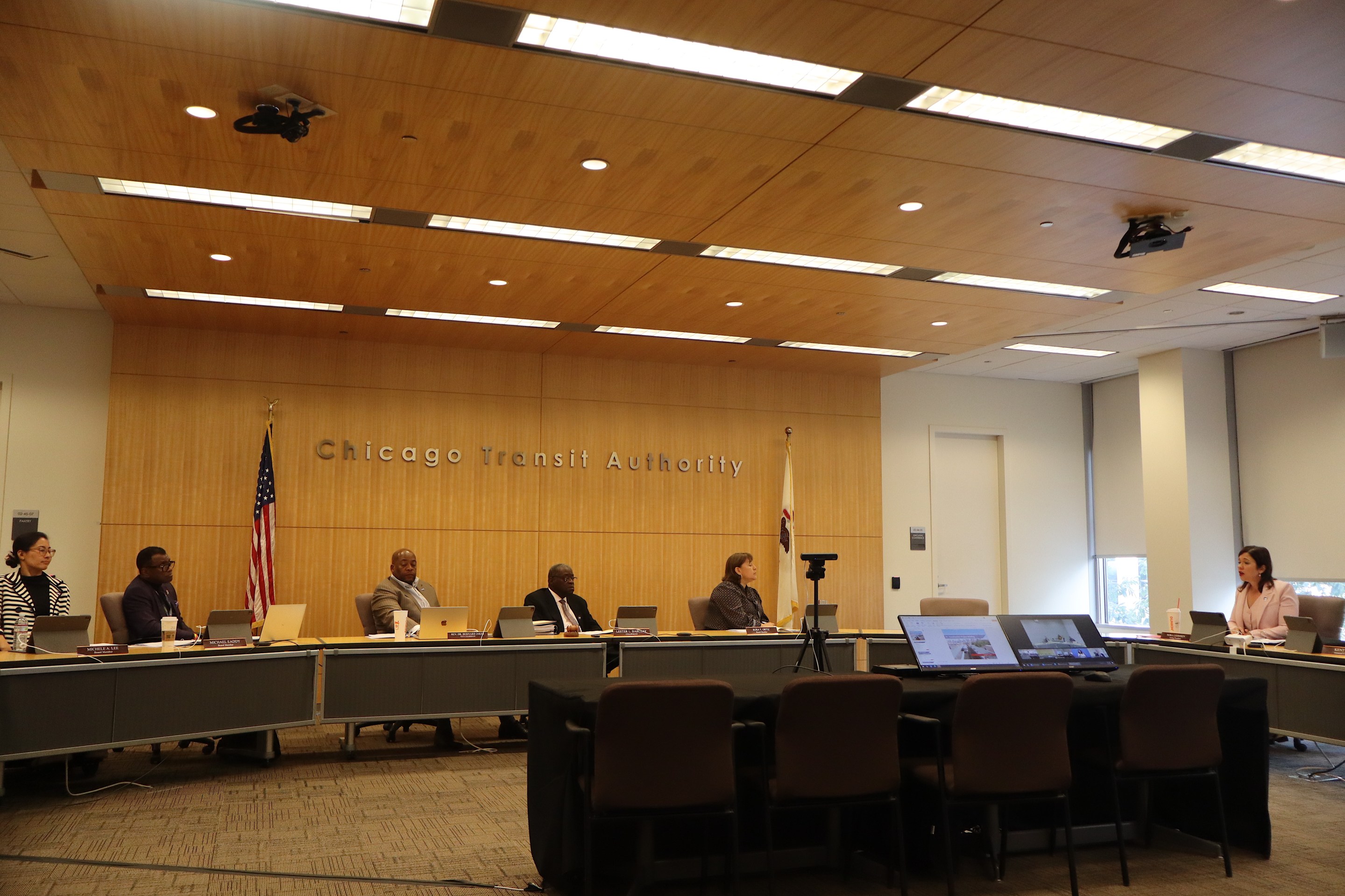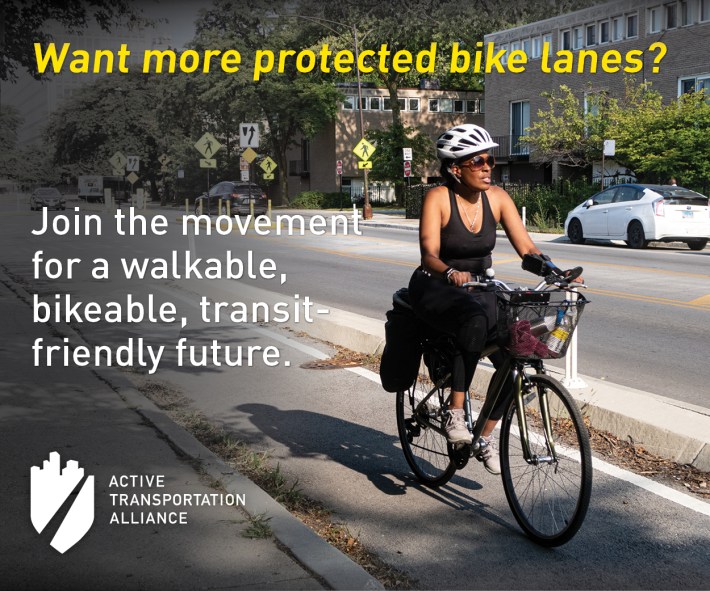
Today's monthly CTA board meeting took place as Illinois lawmakers are getting ready to return to Springfield for the fall veto session, scheduled for October 14-16 and October 28-30. Let's keep our fingers crossed that they will finally pass a transit funding/reform bill, permanently saving our region from previously projected 40 percent service cuts and 3,000 layoffs.
In the meantime, the CTA directors approved an intergovernmental agreement with the City of Chicago as part of a bus/bike lane enforcement pilot. And CTA Acting President Nora Leerhsen discussed last week’s announcement by the Donald Trump-controlled U.S. Department of Transportation that it is freezing $2.1 billion in funding for the Red Line Extension and RPM projects.
However, the meeting didn't cover the transit agency's 2026 budget. Leerhsen said that it would be released next Monday, October 13, and it will now include three potential scenarios. One assumes the Springfield won’t come through with money to avert the dreaded fiscal cliff, recently estimated at $771 million. The second foresees a scenario where the state will provide enough revenue to just barely bridge the monetary canyon. The third predicts that the Capitol will provide twice as much revenue, roughly $1.5 billion, to the Chicagoland transit system, allowing the CTA to invest in more frequent service, and make other improvements.
During last Friday’s meeting of the Regional Transportation Authority’s Ad Hoc Committee on Transit Funding, Leerhsen said that CTA is currently projected to reach the budgetary abyss in mid-2026. The first round of service cuts would potentially come in fall 2026.
Bus/Bike Lane Enforcement Pilot Update
As Streetsblog Chicago has often pointed out, our city's bus-only lanes are less effective than they could be. Since, unlike peer cities like New York, they're generally not camera-enforced, so motorists are usually free to block them with impunity. New Illinois legislation would be required to allow camera enforcement of illegal driving in bus lanes. But in November 2024, Chicago's transportation and finance departments launched the Smart Streets two-year pilot to use cameras to enforce laws against drivers standing and parking in bus and bike lanes.
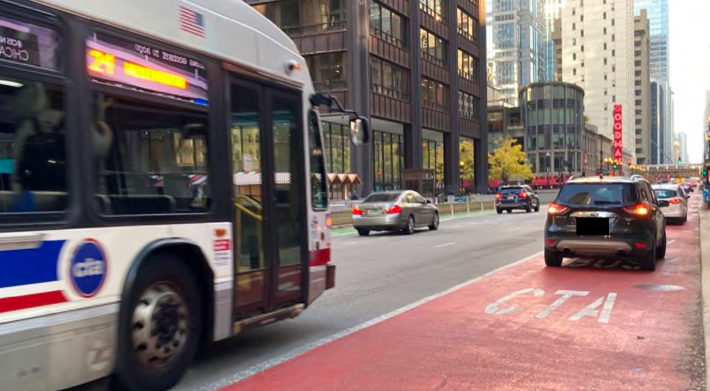
As part of the pilot, the CTA board approved an intergovernmental contract with the City back in March. It calls for Hayden AI to install and maintain "six Automated Bus Lane Enforcement (ABLE) Camera Systems for a period of 24 months" on buses that use dedicated lanes, prioritizing Loop Link routes and the high-ridership 66 Chicago Avenue route. The agreement approved today will clear the way for more cameras and expand enforcement of bus lanes.
Kara Bader, the CTA's Vice President of Strategy and Innovation, said that bus lane enforcement is expected to start next week. As with the earlier agreement, the city will only issue warnings for the first 30 days – after that, the tickets will start.
Looking back at the pilot progress, Bader told the board that, as of this August, the City issued about 23,000 warnings and 7,000 tickets under the pilot, which translated to an average of 23 violations per day. About two thirds of them were for parking in bus lanes, with the remaining third for blocking bike lanes. The bus lane violators were typically driving "passenger vehicles." About two thirds of the bike lane scofflaws were delivery truck drivers.
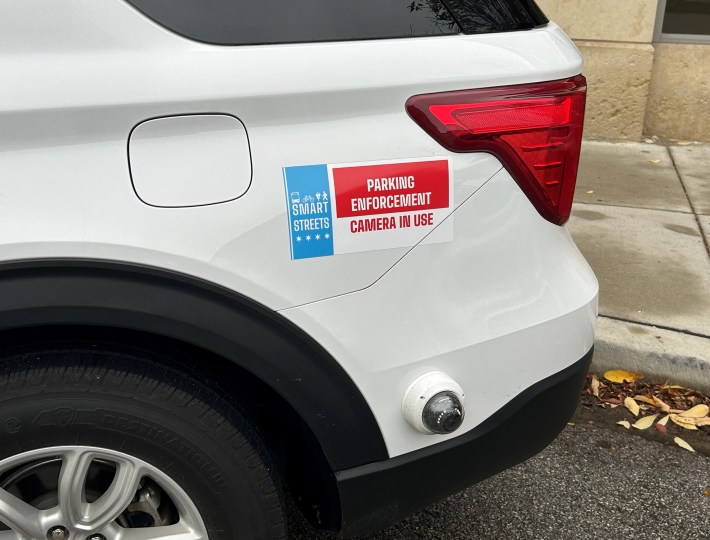
CTA Board Chair Lester Barclay asked how much revenue the transit agency is getting from those tickets. Bader responded that it’s not clear, given that tickets have only been issued for a few months and the City isn’t sure how many drivers will contest the tickets. But she said the revenue would likely be at least enough to recoup the costs of installing and maintaining ABLE.
Board member Michelle Lee said that, as a wheelchair user, she welcomes bus stop parking enforcement, since drivers parking at the stops can interfere with the bus operator's ability to pull up to the curb and lay out a wheelchair ramp.
The CTA's response to the USDOT threat
On Friday, the USDOT announced it was suspending federal grant funding for the Red Line Extension and Red & Purple Modernization Program. The press release cited a new interim final rule barring projects involving race- and gender-based contracting processes from receiving federal grants, claiming these practices are "discriminatory [and] unconstitutional." That was a ridiculous move, because the CTA developed its Disadvantaged Business Enterprise goals because they were required by federal policy.
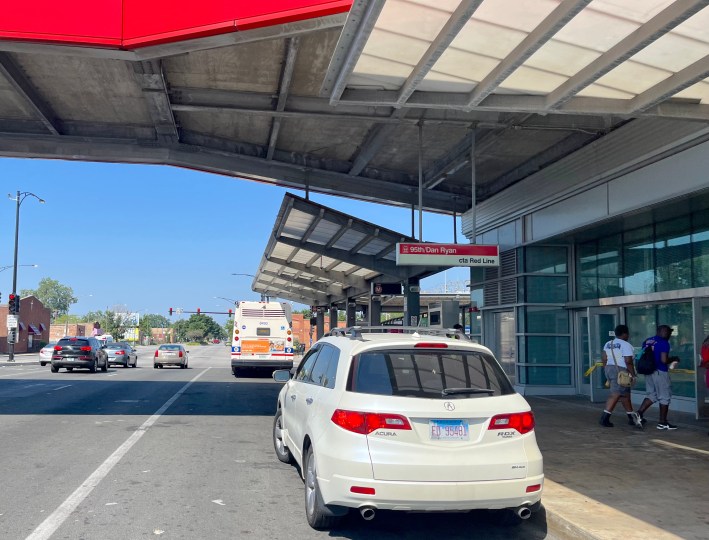
The CTA has been outspoken about providing opportunities for minority-owned businesses and workers, although not all of its contracting and hiring is explicitly race- and/or gender-based. For example, its hiring goals are based on Zip Codes where the workers live. While the Zip Codes correspond to neighborhoods that are either majority-Black or majority-Latino, there is nothing in the program that requires the hires to be minorities to count toward that goal.
During today's meeting, Leerhsen said that CTA is responding to the USDOT's requests for information about its DBE practices, which she said are due by October 21
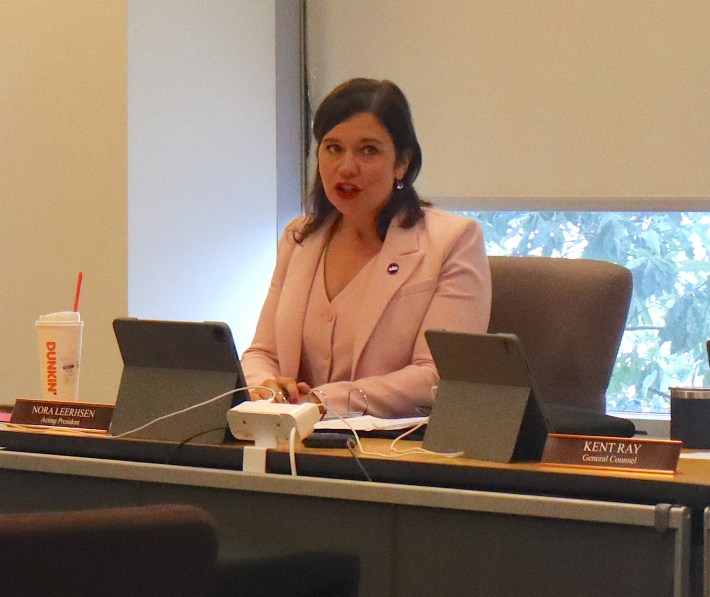
Leerhsen added that the CTA is "working with the industry and local peers to review the impact of the change" in USDOT rules. She emphasized that, in the meantime, prep work for construction and other aspects of the Red Line Extension are currently continuing uninterrupted. "The activities have not been impacted to date," she said.
Barclay responded that "At CTA, we're well aware that projects like RLE or RPM represent far more than connections and infrastructure." He noted that they are an investment in the communities and are a sign that predominantly Black, largely lower-income communities like Roseland, West Pullman and Altgeld Gardens also "deserve safe, accessible, and dependable transit." He told Leerhsen, I fully support you and your team as you navigate the challenge of moving the project forward.
Board member L. Bernard Jakes, a South Sider like Barclay, said that he’s been hearing skepticism over whether the extension will happen at all. "We're going to do everything we can that this doesn’t fall by the wayside," he said.
Director Michael Eaddy asked when the CTA expects to get a response from USDOT.
“We do not have [the answer] at this time,” Leerhsen responded.

The press release from the USDOT, headed by ex-reality TV star Sean Duffy, said the recent federal government shutdown that "has negatively affected the Department’s staffing resources for carrying out this important analysis." It falsely claimed that Democrats are to blame for the delay because they want "benefits for illegal immigrants."
Board member Roberto Requejo, attending the meeting remotely, noted that the transit agency spent years doing the federally required studies and other work to win the RLE grant. "Every step of the way, CTA worked closely with the federal government and followed every [requirement], and here we are dealing with that,” he said, adding that he appreciates that the obstruction the CTA is facing "is not normal."

Do you appreciate Streetsblog Chicago's paywall-free sustainable transportation reporting and advocacy? We officially ended our 2024-25 fund drive in July, but we still need another $42.5K+ to keep the (bike) lights on in 2026. We'd appreciate any leads on potential major donors or grants. And if you haven't already this year, please consider making a tax-deductible donation to help us continue publishing next year. Thank you!
